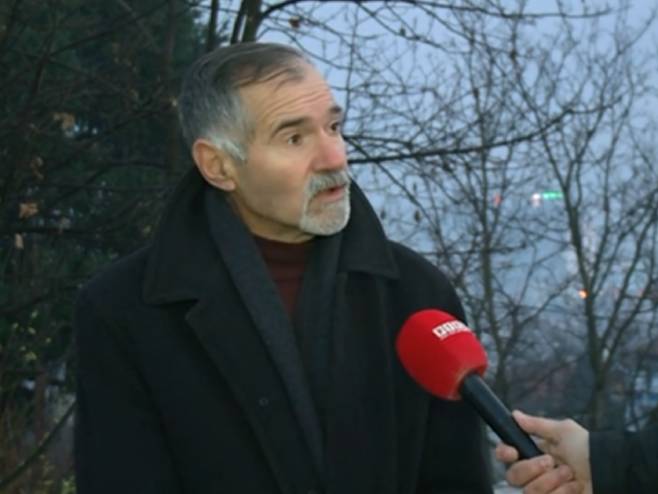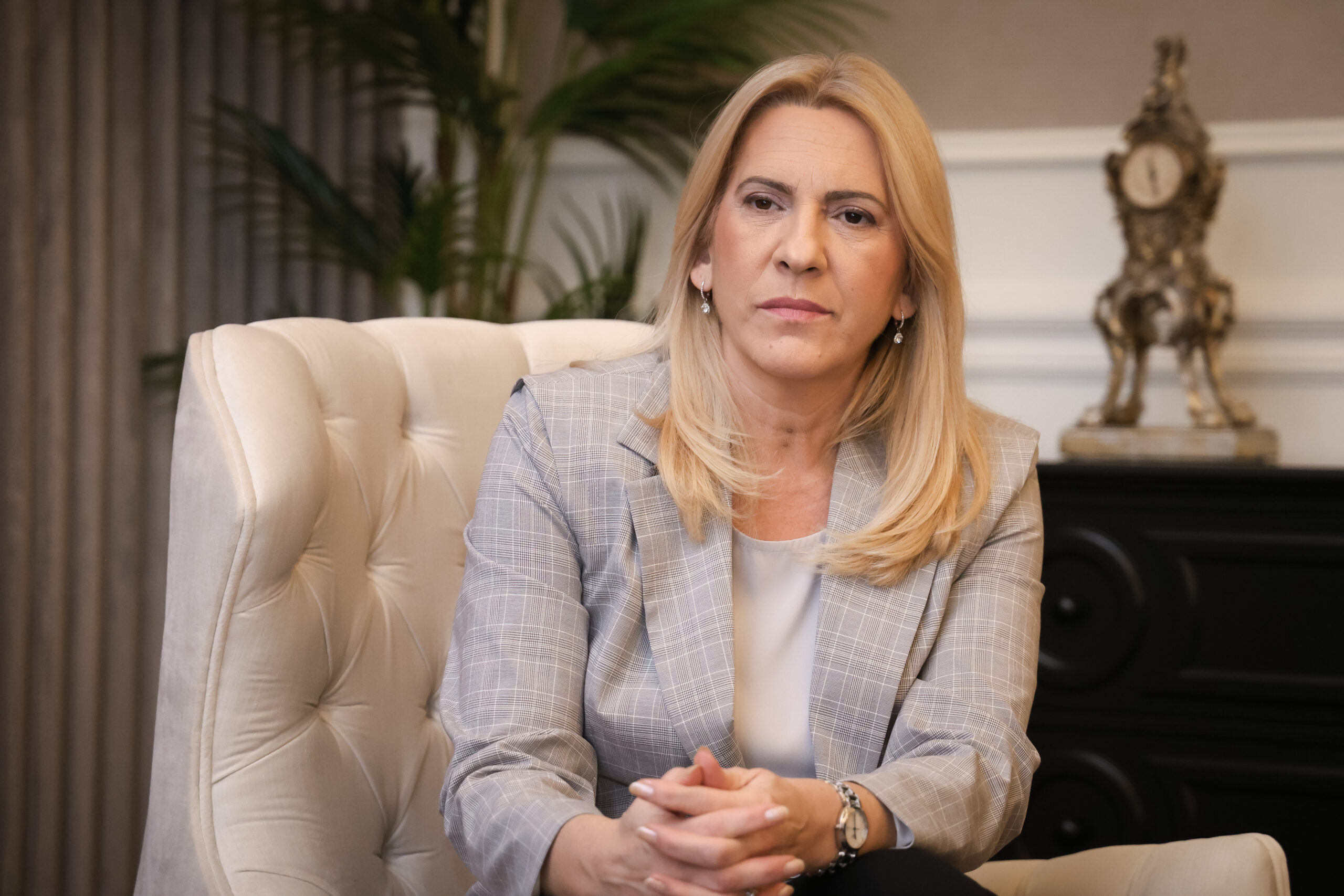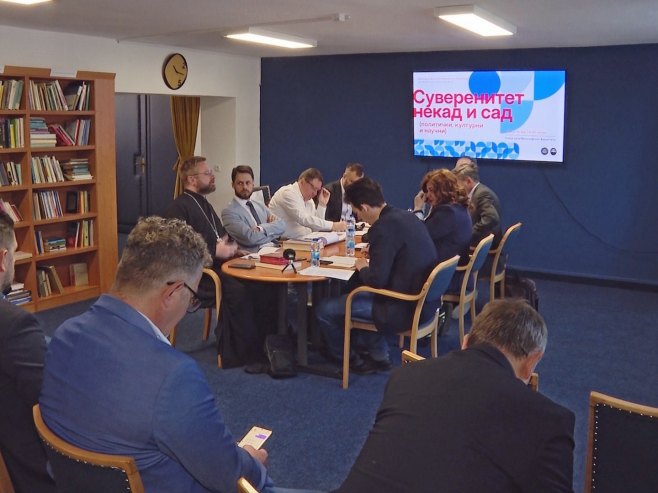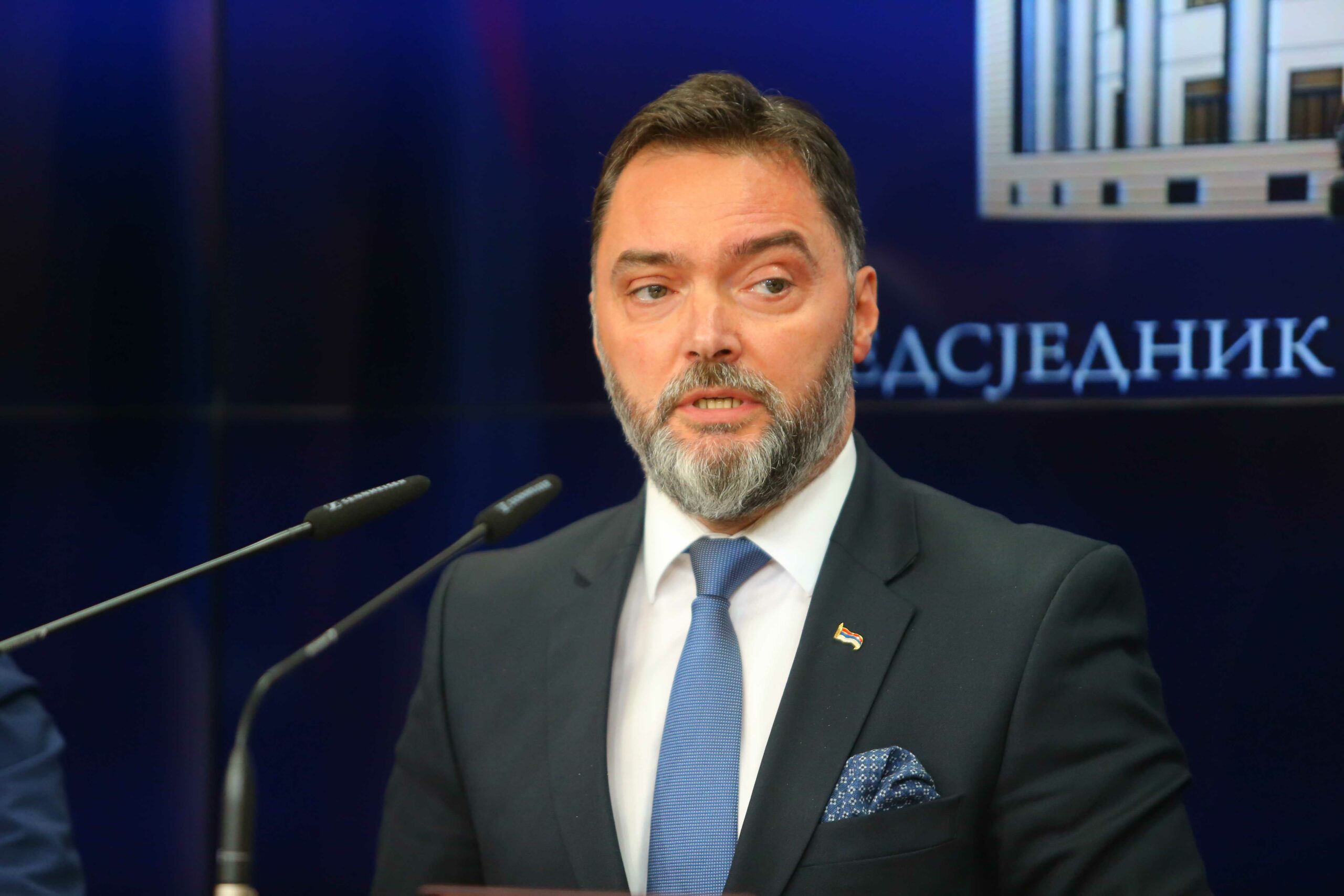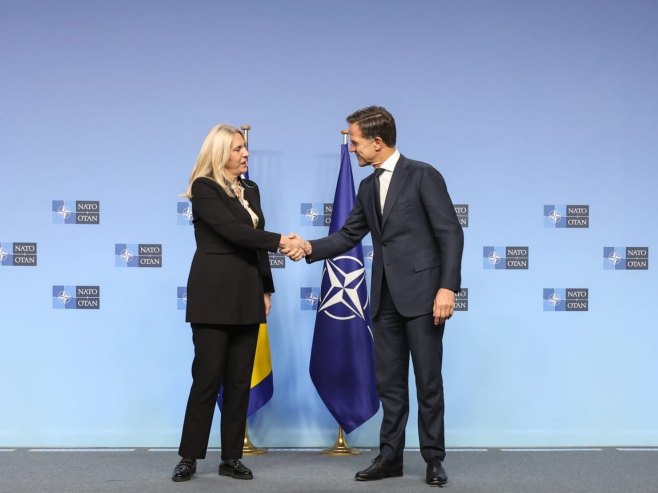The Serb member of the Presidency of Bosnia and Herzegovina (BiH), Željka Cvijanović, has sent a letter to the members of the UN through the Russian mission in this international organization.
Here is the letter published on the UN website:
“I address you as the Serb member of the Presidency of BiH, with the aim to draw your attention to some of the key challenges that BiH faces, particularly in recent years, which not only threaten its functionality but also its long-term sustainability.
As a reminder, the current structure of BiH was established by the General Framework Agreement for Peace, initiated on November 21, 1995, in Dayton and signed on December 14, 1995, in Paris. The significance of the General Framework Agreement, or Dayton Agreement, extends beyond ending the devastating three-year civil war in the region. The agreement also established a political system in BiH that includes democratic, or consociational, mechanisms to ensure equal participation in political processes and protect the constitutional position of the three constituent peoples – Serbs, Croats, and Bosniaks. Annex IV of the Dayton Peace Agreement defines the Constitution of BiH, designating it as a decentralized state composed of two entities – Republika Srpska and the Federation of BiH.
It clearly divides powers among different levels of governance and identifies the competencies of BiH institutions only in six areas: foreign policy, foreign trade policy, customs policy, financial and external obligations of BiH, and policies related to visas, asylum, and migration.
However, almost from its inception, the Dayton constitutional framework has faced significant deviations, primarily under the influence of foreign factors and certain political entities within BiH. This has led to an unsustainable legal war aimed at transforming BiH into a centralized and civic state, a trend that has become more pronounced in recent years.
In accordance with Annex 10 of the Dayton Peace Agreement, the position of the High Representative for BiH was established with the primary responsibility of overseeing the implementation of the civilian aspects of the agreement and assisting domestic political actors in resolving remaining issues. According to Annex 10, the appointment of the High Representative requires verification through an appropriate resolution of the United Nations Security Council. However, the person who currently, apparently falsely, claims the role of High Representative for BiH has not received such verification from the UN Security Council. This clearly indicates the unlawful actions of a person supported only by a minority of countries, basing their alleged position of High Representative on the argument of force.
Furthermore, in complete contradiction with the Dayton Peace Agreement and their powers defined in Annex 10, the person falsely claiming the role of High Representative for BiH has usurped functions of democratically elected institutions in BiH and arbitrarily seeks to present their will as a legislative instrument, relying on key and sensitive areas, from criminal law issues to electoral laws. Unfortunately, this unelected and illegitimate person has gone so far as to label any opposition to their will through interventions in criminal legislation as a criminal offense. This not only undermines the rule of law but also threatens to undermine democratic institutions and elected representatives of BiH, trying to completely subjugate them to their will.
The Dayton constitutional framework faces significant challenges, particularly because of the status and actions of the Constitutional Court of BiH. Instead of serving as a protector of the constitutional order and promoting the principles of constitutionality and legality, the Court has increasingly acted as an ‘extended arm’ or a tool under the influence of the High Representative and those who falsely claim to have authority. Article 6 of the BiH Constitution provides that the Constitutional Court should have nine judges: two from Republika Srpska, four from the Federation of BiH, and three international judges appointed by the President of the European Court of Human Rights, with the consent of the Presidency of BiH. Further, despite Article 6 of the BiH Constitution providing that the House of Representatives of BiH will prescribe an alternative method of appointing judges initially appointed by the President of the European Court of Human Rights upon the expiration of their terms, this has not occurred. The existing ‘voting mechanism’ within the Constitutional Court, which includes Bosniak and international judges, has been used over the years to reshape the constitutional structure of BiH, undermining the positions and competencies of the entities, especially Republika Srpska.
In any case, the actions of the unelected, illegal, and illegitimate person who falsely claims the role of High Representative, together with the actions of the Constitutional Court including three international judges, mainly serving to maintain a ‘protective regime’ and the policy of force, not only hinder BiH’s path towards EU integration but also undermine its powers as a UN member.
I want to highlight certain abuses in the area of foreign policy, especially concerning issues that will be considered by key UN bodies in the coming period. This includes the draft resolution on the International Day of
Remembrance and Recollection of the Genocide in Srebrenica, which is scheduled for consideration at the UN General Assembly on May 2, 2024. According to Article V3 of the BiH Constitution, the Presidency of BiH has exclusive responsibility for the country’s foreign policy. However, the Presidency, consisting of three members – two elected from the Federation of BiH and one from Republika Srpska – has not discussed the draft resolution, its preparation, or its initiation for adoption. No official position has been taken, nor has any formal decision been made on this issue. Essentially, despite Germany and Rwanda nominally sponsoring the resolution, with the support of several countries, the action of the permanent representation of BiH at the UN in drafting the resolution, presenting its content, and lobbying for its adoption represents an unlawful act, reflecting the will of only one ethnic group within BiH.
Since this is an open violation of the prescribed procedure for determining and conducting foreign policy, as well as the laws of BiH, I want to inform you that those responsible for such actions on behalf of BiH, including the head of the permanent representation of BiH at the UN, will face criminal proceedings before the competent bodies in the country. Furthermore, I want to inform you that I have initiated the necessary procedure for his recall within the Presidency of BiH. Your Excellency, I am deeply convinced that BiH can only progress by strictly adhering to its constitutional solutions. We hope that its European future will be secured by its democratically elected institutions. The gross violation of the Dayton constitutional arrangement, based exclusively on the authority of force and favoring only one of the three constituent peoples of BiH, leads to further divisions and directly threatens the future existence of the country.
In light of this, I kindly ask for your help in organizing an urgent meeting (session) of the United Nations Security Council. At this meeting, an objective review of the political and security situation in BiH would be provided, and solutions for some of the burning issues burdening the country would be sought,” the letter ends, which Željka Cvijanović sent to the UN through the Russian mission.
Cvijanović addressed the letter to the Chair of the UN Security Council and the Permanent Representative of Malta to the UN, Vanessa Frazier.
The UN Security Council session will be held today at 10 PM Central European Time.
Source: RTRS

